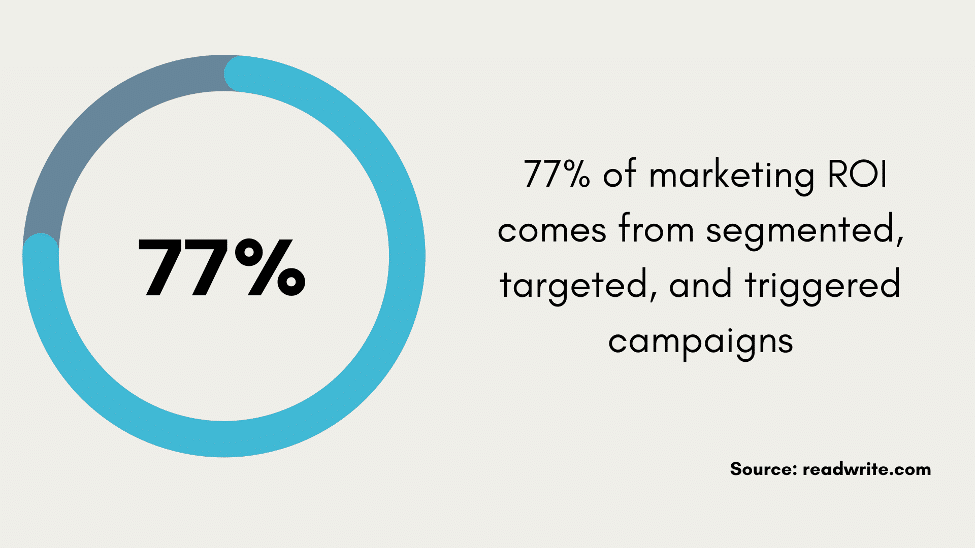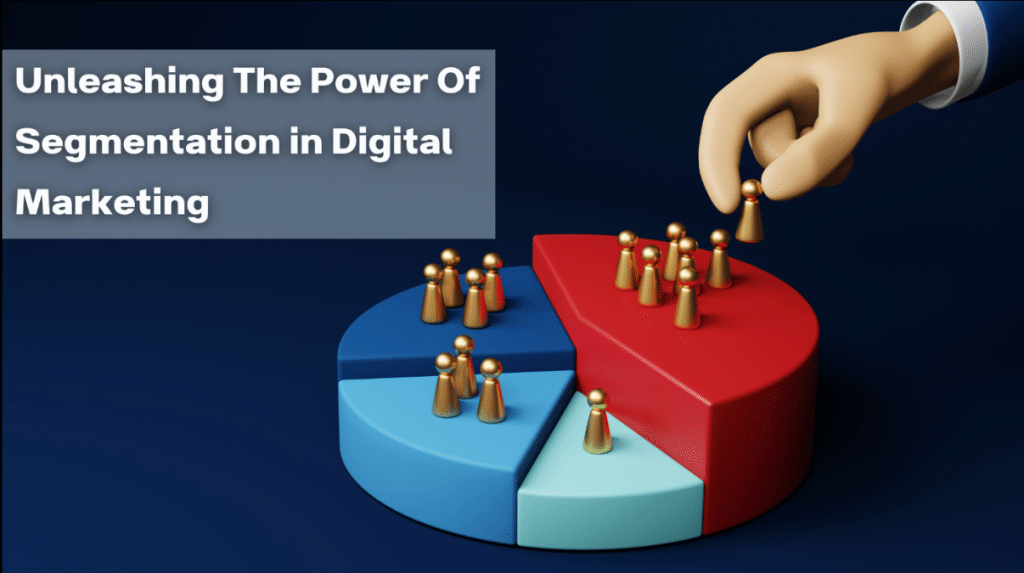Are you tired of marketing that doesn’t connect? Discover how intelligent segmentation can revolutionize your campaigns. This guide explores advanced techniques using AI-driven software to personalize your approach.
SStand out, increase engagement, and achieve better returns by addressing your audience’s specific needs. Learn how segmentation can drive marketing success.
The Strategic Importance of Market Segmentation
Redefining Audience Engagement With Digital Marketing Automation Software
Traditional one-size-fits-all marketing often results in generic messaging that fails to grab your audience’s attention. Digital marketing segmentation, powered by marketing automation software, allows you to transform broad campaigns into targeted conversations with specific audience segments.
By understanding each segment’s unique characteristics, behaviors, and preferences, you can craft messaging that directly speaks to their needs, fostering stronger connections and driving better engagement.
Audience segmentation tools in marketing automation software enable businesses to split their customer data based on a wide range of criteria. From demographics and geographic location to behavioral patterns and psychographic traits, these tools provide detailed insights into the makeup of your audience segments. With this knowledge, marketers can tailor content, offers, and messaging with pinpoint accuracy, ensuring each interaction deeply resonates with the intended recipient.
Boosting ROI With CRM Software for Digital Marketing
The strategic implementation of market segmentation strategy has a direct impact on your marketing ROI. According to a study by MailMunch, most of the marketing ROI comes from segmented, targeted, and triggered campaigns.

When you target specific audiences with tailored messages, you avoid wasting money on ineffective campaigns and get better returns on your marketing investment. Digital marketing CRM software can help by organizing and analyzing customer data, making segmentation and targeting easier.
Advanced Techniques for Segmenting Digital Audiences
While traditional segmentation methods like demographics and geographic location still hold value, the digital age has ushered in more sophisticated techniques for understanding and engaging with your target audiences.
Behavioral Segmentation With Customer Segmentation Software
Behavioral segmentation marketing involves analyzing user behavior data, such as website visits, purchases, and interactions, to identify patterns and preferences. Customer segmentation software can help you collect and analyze this data, allowing you to tailor your messaging and offers based on how your customers interact with your brand, leading to more relevant and impactful campaigns.
Psychographic Segmentation With Marketing Segmentation Software
Psychographic segmentation in marketing goes beyond demographics and behavior, delving into customers’ lifestyles, values, and personalities. Marketing segmentation software can help you gather and analyze data from surveys, social media, and other sources.
This enables you to understand your audience’s interests, attitudes, and motivations. With this information, you can create campaigns that resonate on a deeper level, fostering stronger emotional connections and brand loyalty.
Geographic and Demographic Segmentation With Cloud-Based Marketing Software
While more advanced techniques have emerged, traditional geographic segmentation online and demographic segmentation strategy still play a crucial role in digital marketing. Marketing software cloud solutions can help you target customers based on location and demographic factors like age, gender, and income level, ensuring your campaigns are relevant and appealing to specific segments of your audience.
Integrating Technology with Segmentation Strategies
Technology has revolutionized the way marketers approach segmentation, offering powerful tools and insights to enhance targeting and personalization efforts.
AI and Machine Learning With Digital Marketing Software
AI in market segmentation has opened up new possibilities for dynamic and intelligent segmentation. Machine learning algorithms within digital marketing software can analyze vast amounts of data, identifying patterns and trends that would be difficult for humans to detect. This enables marketers to create highly granular segments and adapt their strategies in real-time, ensuring that their campaigns remain relevant and effective.
Real-Time Data Utilization With Cloud-Based Marketing Platforms
In the fast-paced digital world, real-time data segmentation is essential for staying ahead of the curve. By leveraging live data feeds and analytics within marketing software cloud platforms, marketers can adjust their segmentation strategies instantaneously, responding to changing customer behaviors and preferences with agility.
Overcoming Common Challenges in Market Segmentation
While the benefits of segmentation are undeniable, marketers often face challenges that can hinder their efforts. Fortunately, modern digital marketing software and platforms can help overcome these obstacles.
Data Overload With Cloud-Based Data Management
One of the biggest challenges in digital marketing segmentation is dealing with the overwhelming amount of data available. Marketing software cloud solutions can help marketers effectively collect, organize, and analyze vast datasets, enabling them to derive actionable insights and avoid data paralysis.
Privacy Concerns With Compliant Data Handling
As data privacy regulations continue to evolve, marketers must navigate the challenges of data privacy in market segmentation. Many digital marketing software platforms prioritize compliance with privacy laws, offering features like consent management and data protection measures to help maintain consumer trust and avoid legal repercussions.
Future Trends and Innovations in Segmentation
Segmentation is always evolving, with new trends and innovations emerging to improve targeting and personalization, often driven by advancements in digital marketing tech.
Predictive Segmentation Using Advanced Analytics
Predictive segmentation is an exciting development that uses advanced analytics and machine learning in digital marketing software to predict customer needs and behaviors. This lets marketers tailor campaigns proactively, staying ahead of customers’ changing preferences.
Cross-Platform Segmentation With Integrated Marketing Platforms
As consumers interact with brands on multiple digital platforms, cross-platform marketing becomes crucial. Integrated marketing software platforms offer unified segmentation strategies, integrating data from various channels. This enables businesses to deliver consistent and personalized experiences across all touchpoints.
Segmentation Techniques
To better understand the different segmentation approaches, let’s compare their key characteristics:
| Technique | Data Sources | Advantages | Challenges |
| Behavioral Segmentation | Website interactions, purchase history, social media activity | Highly targeted, tailored to individual preferences | Requires extensive data collection and analysis |
| Psychographic Segmentation | Surveys, social media data, lifestyle indicators | Fosters deeper emotional connections, resonates with values and motivations | Subjective data, difficult to quantify |
| Geographic Segmentation | Location data, regional preferences | Tailored to local markets, cultural nuances | Limited reach, potential for overgeneralization |
| Demographic Segmentation | Age, gender, income, education level | Easy to implement, based on objective data | Broad categories, may overlook individual preferences |
This table shows different segmentation techniques, each with its strengths and weaknesses. A successful segmentation strategy usually combines several approaches and uses specialized digital marketing software to fully understand the target audience.
FAQs
1. How does segmentation contribute to personalized marketing at scale?
Segmentation allows personalized marketing at scale by tailoring content and experiences for specific audience groups. Automation and segmentation tools in digital marketing software help deliver personalized messages efficiently.
2. What are the risks of over-segmentation, and how can they be mitigated?
Over-segmentation risks diluting messages and alienating audiences. Mitigate by focusing on relevant segments aligned with business goals, and avoiding excessive granularity. Regularly review and consolidate segments.
3. How will emerging privacy regulations affect segmentation strategies?
Privacy regulations like GDPR and CCPA impact segmentation. Marketers must prioritize transparency, obtain consent for data use, and implement data protection measures in digital marketing tools.
